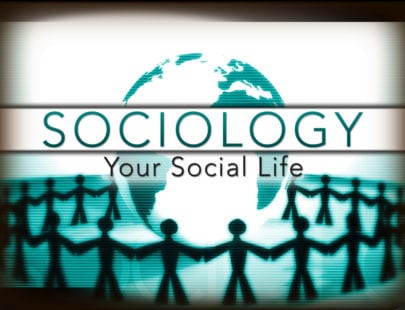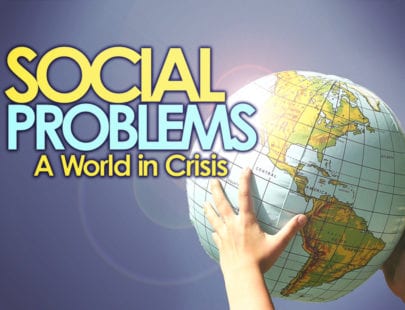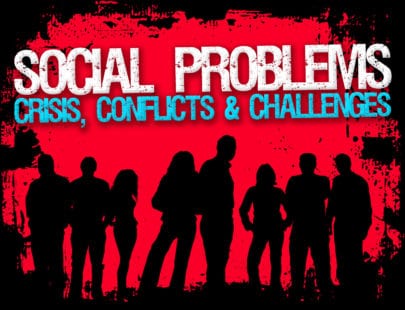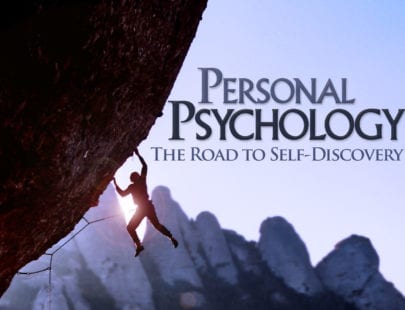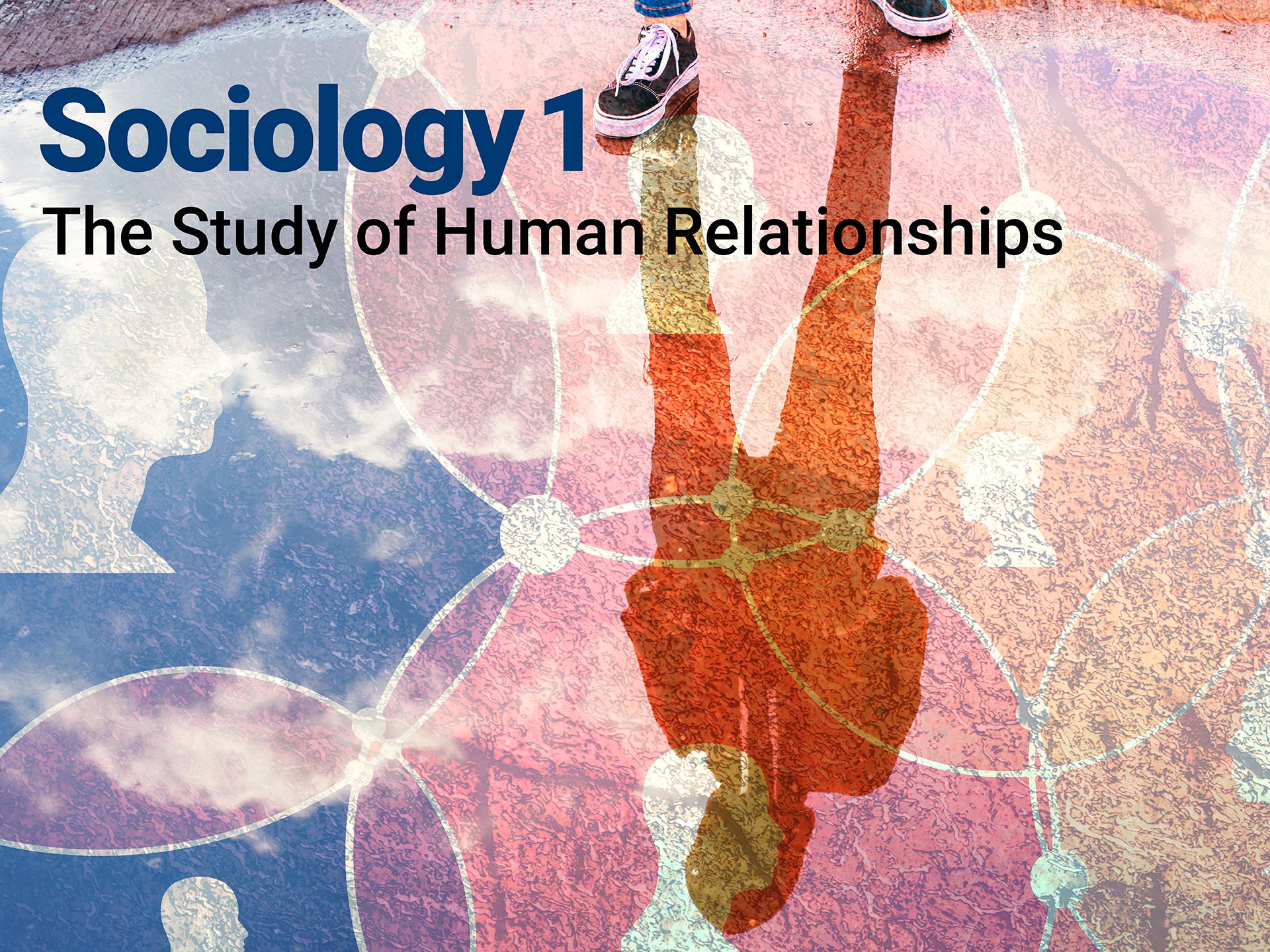
Sociology I: The Study of Human Relationships
Have you ever wondered why people act differently from one another or why some people act in more intriguing manners than others? When you view people’s behaviors as distinctive and try to figure out why they act the way they do, you are beginning to think like a sociologist!
Sociology is the study of human social relationships and how individuals interact with one another in groups. By studying sociology, you’ll gain insight into the complexities of our society. If you’re interested in understanding the world around you and making a positive difference, studying sociology is for you!
Units at a Glance
Unit 1: Sociology Foundations
Have you ever asked yourself why people act the way they do? Think about a time you were at a store and saw someone acting in a unique way. Perhaps you had some questions about what they were doing and wanted to learn more. When you view people’s behaviors as different and try to figure out why they act the way they do, you are asking some of the same questions sociologists ask.
Sociology is the study of human social relationships and how individuals interact with one another in groups. By studying sociology, you can gain insights into the complexities of our society, including issues related to race, gender, class, and power. Sociology also provides a framework for understanding social change and the impact of globalization. If you’re interested in understanding the world around you and making a positive difference, studying sociology can be a rewarding and enriching experience.
What will you learn in this unit?
After studying this unit, you will be able to:
- Explain the origins and history of sociology, the sociological perspective, and the contributions of leading sociologists
- Apply a variety of sociological theories to present-day society
- Identify important components of sociology as a social science
- Analyze the different methods of experimentation in sociology
Unit 2: Culture and Society
How do you define the terms culture and society? Do you feel like you are a member of a specific culture? Do you belong to a society? What makes a group like the music, fashion, or art that it does? How do people determine how to navigate their way through society and its many groups? So many questions! Society and culture surround us every day, but many people don’t stop to explore these concepts. Fortunately, sociologists have been researching these ideas for a long time. In this Unit, you will learn about cultures and social structures: how they form and how these institutions affect the way that people behave and live.
What will you learn in this unit?
After studying this unit, you will be able to:
- Analyze the factors, norms, values, language, and symbols that make a culture and a society different from others
- Compare different cultures and societies around the world
- Determine how culture is shaped by subcultures and countercultures
- Discuss roles as an individual within groups and subgroups within a society and the idea of nurture versus nature
Unit 3: Socialization
How do you develop into the person you are? What impacts your personality and ways of thinking? Do you have control over who you become? In this unit, we will discuss exactly how a person evolves into who they are and what factors impact this development. The way people learn how to act and interact is the process of socialization, and it strongly impacts who you develop into over time. Your family, your peers, your school, and many other social groups help shape you into the person you are.
What will you learn in this unit?
After studying this unit, you will be able to:
- Describe different agents of socialization
- Explain the stages in the socialization process
- Apply theoretical perspectives on socialization to the real world
- Evaluate how different demographic factors impact a person’s socialization
- Compare informal and formal social institutions and structure
Unit 4: Society and the Individual
How does society affect individuals? Groups, culture, demographics, and more affect how an individual develops their own sense of self. Biological development also has an impact on the individual. In this unit, we will explore how many aspects of society influence a person’s identity, with a special focus on adolescence and adulthood.
What will you learn in this unit?
After studying this unit, you will be able to:
- Discuss how the five characteristics of the adolescent stage affect socialization
- Explain what makes the adolescent stage of development unique
- Compare the “I” and “Me” and their effects on socialization
- Describe what makes the adulthood stage of development unique
- Evaluate how gender, race/ethnicity, and age impact socialization and society
Unit 5: Social Institutions
What groups and organizations have the most influence on your life? Social institutions include the groups and organizations that affect socialization, or the way you learn to act around others. Think about how your family, your school, your clubs or sports teams, and even your government play a role in shaping your identity. Where do you fit into these groups? In this unit, you will examine social institutions and how they impact your overall life.
What will you learn in this unit?
After studying this unit, you will be able to:
- Describe various types of social institutions
- Evaluate the impact of family and religious organizations on individuals and society
- Explain the impact of the media and education on individuals and society
- Identify formal organizations and their functions
- Discuss types of groups and group dynamics
Unit 6: Rules of Society
Society has to regulate a vast amount of people and, to do so, rules and laws are created. Establishing law and order helps prevent people from causing dangerous situations for everyone. Many people conform to society’s rules and laws for the greater good, but some deny these rules. What happens to those who break the laws of society?
Are any laws unfair? Do they need to be challenged? Sometimes groups organize to protest unjust societal rules, and this collective behavior can cause positive change. Throughout this unit, you will study rules and their impact on people and societies.
What will you learn in this unit?
After studying this unit, you will be able to:
- Examine how human behavior is affected by rules
- Discuss conformity and deviance
- Compare and contrast social control and social problems
- Evaluate the positive and negative impacts of collective behavior
Unit 7: Social Change
People often ask what impact they can make as just one person. But individuals are the initial drivers of overall transformation. To inspire change, an idea often starts with one person and then grows and expands to make a larger difference. In this unit, you will explore how people, their culture, their leadership, and their ideas can transform a society. You have previously read about social change, but now let’s examine it through the lens of the people who create it.
What will you learn in this unit?
After studying this unit, you will be able to:
- Define social change as it applies to individuals and society
- Evaluate the impact of innovation on culture
- Analyze how people’s behaviors and cultures influence society
- Discuss social movements and their effects
Unit 8: Social Stratification
Why are people treated differently? People in society are often judged based on physical features, social status, and economic status. While some can be treated in positive ways based on who they are, like getting special treatment, many others are treated negatively. This difference in treatment is a problem that society has struggled with throughout history. It affects society by keeping certain people in a position of power while leaving others without power and rights.
What will you learn in this unit?
After studying this unit, you will be able to:
- Describe how a person’s status and role relates to society’s treatment of them
- Discuss how gender stratification and an aging population impact society
- Explain class stratification and its effect on society
- Summarize how race and ethnicity stratification affect society
Required Materials
Physical
- Video recording device
Software
- Presentation software
- Word processing software
Other
- Adult Helper
- Helper
Optional
- Art supplies
- Audio recording device
- Digital camera
- Graphic design software
- Spreadsheet software
